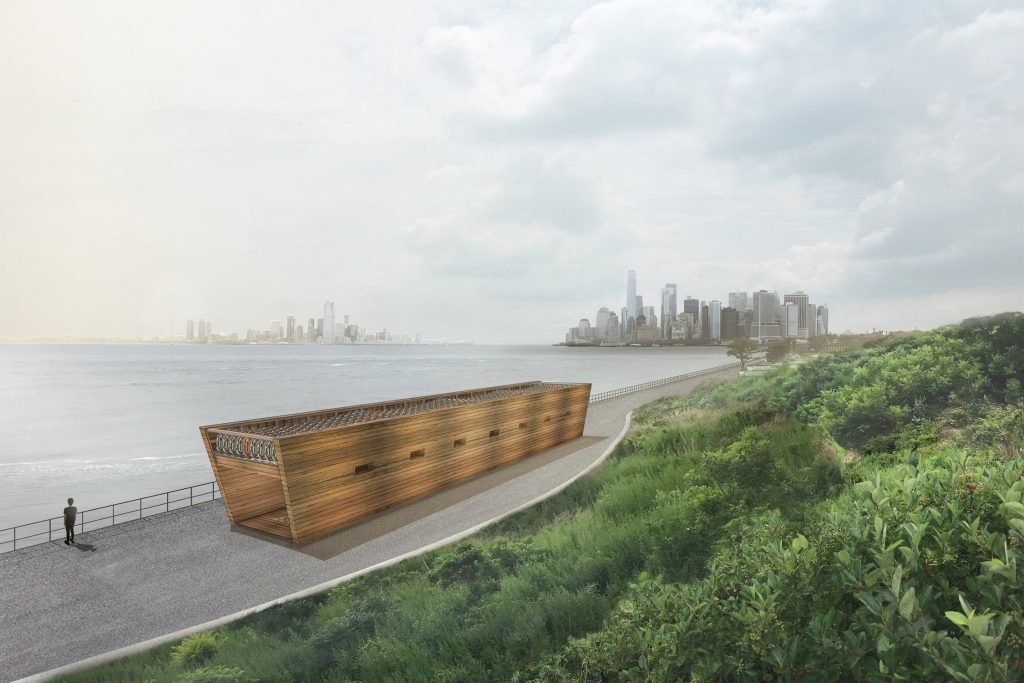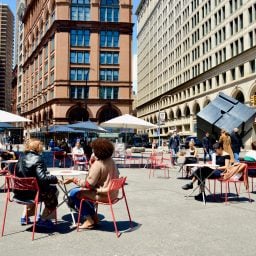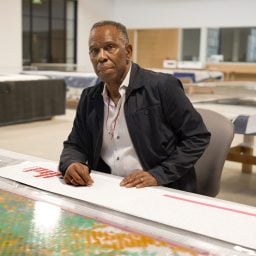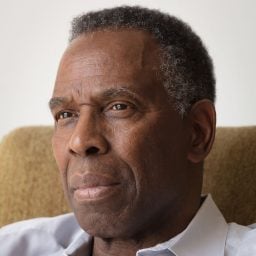Three centuries ago, sweetgum trees blanketed the island of Manhattan. Next month, a grove of those same trees will pop up in Times Square, albeit upside down—a symbol of all the cultures that have been uprooted and erased by racial capitalism’s merciless march.
The installation is just one component of a hugely ambitious—and rigorously conceptual—project by Charles Gaines. It also marks the first time the venerable artist has created public art in his five-decade-long career.
Presented by Creative Time, Times Square Arts, and Governors Island Arts, the project will move from Manhattan to Governors Island and then all the way to Cincinnati, Ohio, actualizing the route that enslaved African Americans once took along the Ohio River, seeking freedom in the North.
Capitalism and the institution of slavery are at the heart of Gaines’s target here, but the artwork, called The American Manifest, also interrogates issues of colonization, environmental exploitation, and how the country’s unique topography, legal history, and property laws fed a system of subjugation that continues today.
“The installation,” Gaines told Artnet News, “is intended to unpack these things and show the relationship they have to each other.”
“The entire narrative isn’t exposed in one location,” he continued. “It takes a consideration of all three locations to see the entanglement of how connected these practices have been in shaping the American institute.”
Gaines’s installation of sweetgums, called Roots, will open in Times Square, the de facto capital of American commerce, on July 13. Inaugurating the event will be a two-night performance of an operatic piece the artist composed based on the 1857 Dred Scott decision, which held that Black people were not conferred citizenship under the U.S. Constitution. During the performances, the text of Justice Roger Taney’s decision, which Gaines calls “unbelievable” still today, will scroll down a screen mounted before the iconic Times Square billboards.
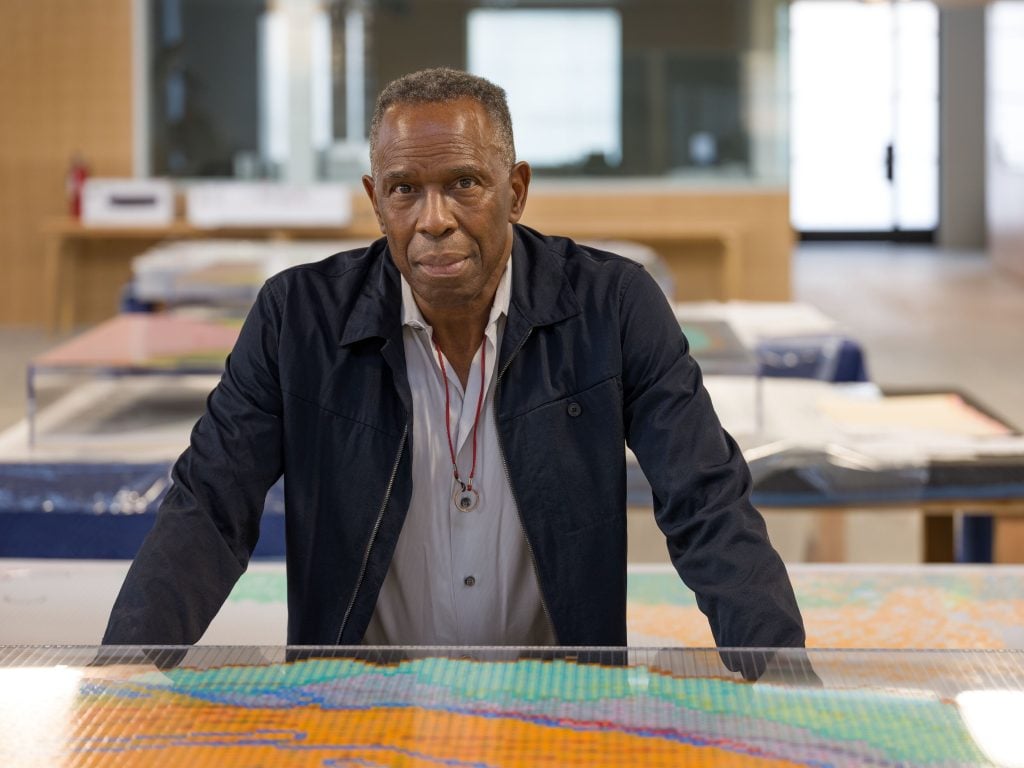
Charles Gaines in his Los Angeles studio, 2020. © Charles Gaines. Courtesy the artist and Hauser & Wirth. Photo: Fredrik Nilsen.
In October, Gaines will open the second “chapter” of his project on Governors Island: a 100-foot-long immersive sculpture meant to recall the hull of an old ship, perhaps one transporting slaves. Inside, eight motor-operated chains will rotate along at the pace of the current in New York’s harbor (roughly 2.5 knots, the artist said), while a ninth, central chain will churn at a quicker clip—the average speed (7 knots) of ships and barges.
“The middle chain points to the speed of commerce,” Gaines explained, “while the other chains reflect the flow of the river.”
Visitors can climb atop the imposing structure to watch the chains from above or enter to view them from below. “The sound,” according to the artist, “will be massive.” He hopes the “challenging” piece, called Moving Chains, will engender a visceral response.
Come Summer 2023, Moving Chains will open on the banks of the Ohio River in Cincinnati, completing The American Manifest’s path.
Though it may be unlikely that many viewers will experience all three stages of Gaines’s vision, Creative Time executive director Justine Ludwig said the project was “conceived so that individual elements could stand on their own as singular experiences.”
“Part of the power of public art is that visitors sometimes just happen upon the work,” she added. “It provides a truly unexpected experience that intersects with the rhythms of daily life.”
Many will have that experience, it seems. Times Square Arts director Jean Cooney expects 20 million people to encounter the first part of The American Manifest this summer alone.
“Charles [is an artist who] approaches critical and monumental topics in a way that requires meditation and attention,” Cooney said. “My hope is that even if a small portion of that audience is able to either conceptually link these narratives, or even better, experience Gaines’s installation on Governors Island or head home to Ohio and see his work there, we’ve fulfilled our responsibility as a public art organization to provide new access points for discovery and engagement.”
Chapter One of Charles Gaines’s The American Manifest will be on view from July 13 – September 23, 2022 in Times Square in New York. Chapters Two and Three will open in October 2022 and the Summer of 2023, respectively.
